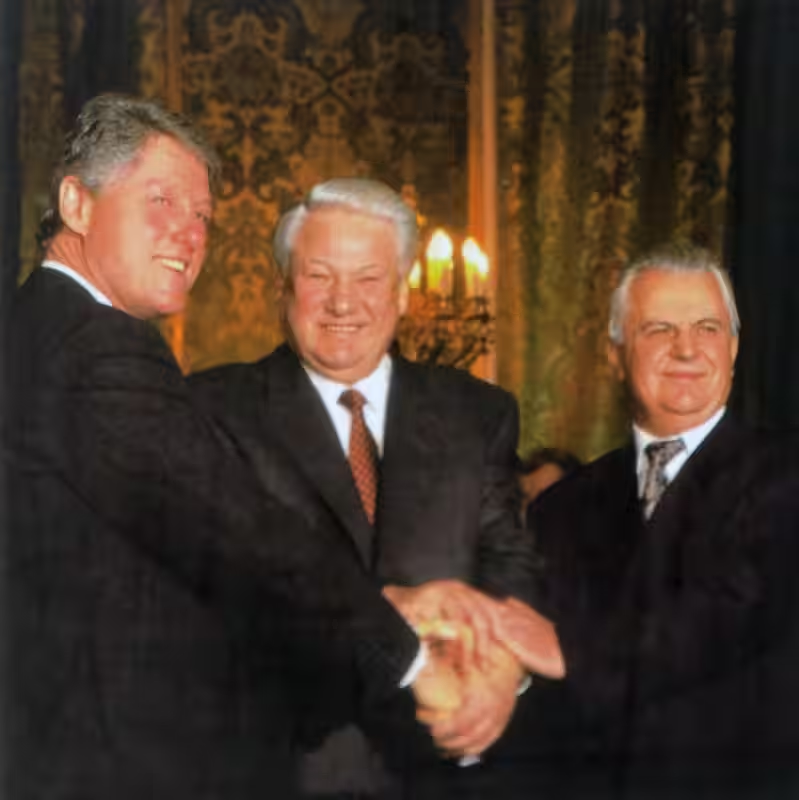Budapest Revisited: Ukraine’s Haunting Reminder of Broken Security Promises
As Ukrainian President Volodymyr Zelensky navigates another high-stakes diplomatic moment in Budapest, the Hungarian capital isn’t just a venue for talks—it’s a painful echo of history. For many in Kyiv, the city evokes the 1994 Budapest Memorandum, a landmark agreement that promised security assurances in exchange for Ukraine giving up the world’s third-largest nuclear arsenal. Three decades later, with Russian missiles raining down on Ukrainian cities, that promise feels tragically hollow.
“We traded nukes for paper,” said Oleksiy Goncharenko, a Ukrainian MP, during a recent parliamentary session. “And when the paper burned, no one came to help.”
What Was the Budapest Memorandum?
On December 5, 1994, Ukraine, the United States, the United Kingdom, and Russia signed the Budapest Memorandum on Security Assurances. In return for surrendering over 1,900 strategic nuclear warheads—left on its soil after the Soviet Union’s collapse—Ukraine received guarantees of its sovereignty, territorial integrity, and protection from economic coercion or military threat.
Notably, the document was not a legally binding treaty. It was a political commitment—well-intentioned but ultimately unenforceable.
The 2014 Betrayal—and 2022 Invasion
When Russia annexed Crimea in 2014, Ukraine invoked the Budapest Memorandum, calling on signatories to uphold their pledges. The response? A joint statement of “concern” from the U.S. and U.K.—and no military intervention. Russia, of course, dismissed the agreement entirely.
Then came February 2022. As tanks rolled across the border, Zelensky reportedly asked Western leaders: “Where is Budapest now?” The question wasn’t rhetorical—it was a cry of disillusionment from a nation that had disarmed in good faith.
Why Budapest Still Matters in 2025
Zelensky’s presence in Budapest this week—amid stalled U.S. aid and growing war fatigue in Europe—has reignited debate over security guarantees. Ukrainian officials are now demanding more than promises: they want NATO membership, bilateral defense pacts, or at minimum, legally binding security commitments with teeth.
“We won’t be fooled twice,” said Foreign Minister Dmytro Kuleba in a press briefing. “Paper assurances without enforcement mechanisms are just invitations to aggression.”
Timeline: From Disarmament to Devastation
| Year | Event |
|---|---|
| 1991 | Ukraine inherits nuclear arsenal after USSR collapse |
| 1994 | Budapest Memorandum signed; Ukraine agrees to denuclearize |
| 1996 | Ukraine transfers last warhead to Russia |
| 2014 | Russia annexes Crimea; Budapest assurances ignored |
| 2022 | Full-scale Russian invasion begins |
| 2025 | Zelensky returns to Budapest seeking real security guarantees |
A Warning to the World?
Ukraine’s experience has sent ripples far beyond Eastern Europe. Analysts warn that the broken Budapest promises could discourage other nations from disarming. “Why would North Korea or Iran ever trust a U.S. security pledge after this?” asked Dr. Fiona Hill, former National Security Council Russia expert.
For Ukraine, the lesson is clear: sovereignty must be defended—not just promised.




